Dry, hot summers could become 'common' in Scotland
- Published
- comments
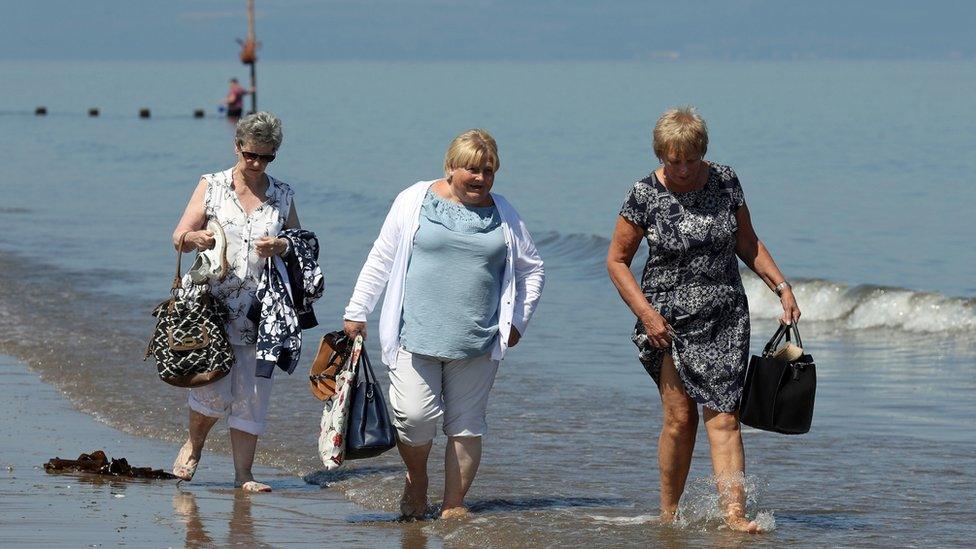
Scotland should prepare for more dry, hot summers with temperatures of about 30C, according to researchers.
They say that unless CO2 emissions are cut "very drastically" across the world, record-breaking summers such as 2018 could become "quite common".
That summer was unusually hot, with a near record high of 31.9C recorded at Bishopton in Renfrewshire.
Academics say the country should plan how to deal with more frequent high temperatures caused by climate change.
The report, external by researchers from Edinburgh and Oxford universities and Met Office staff analyses UK climate projections.
They suggest there is a substantial increase in the likelihood of temperatures reaching 2018's levels between now and 2050.
What was the summer of 2018 like?
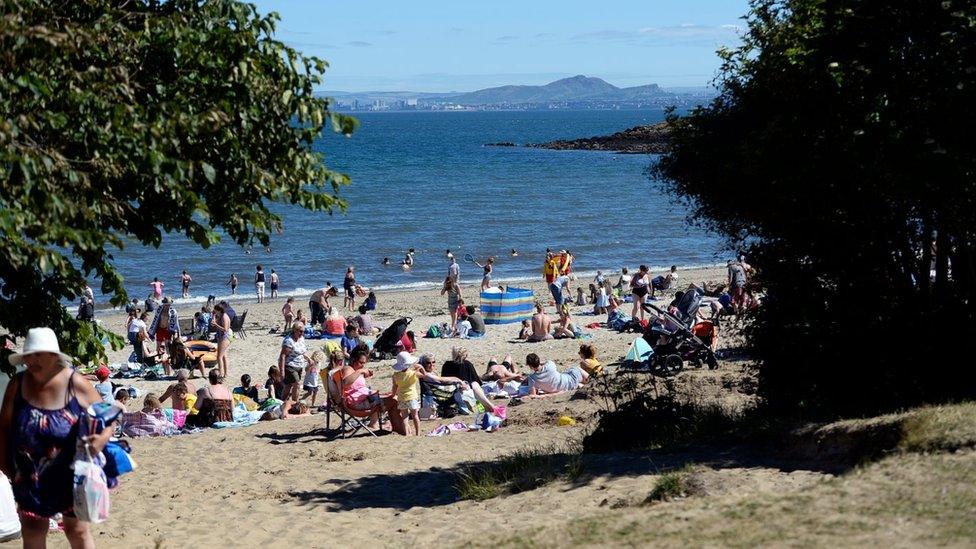
There was a rise in "staycations" as a result of the warm weather in 2018
The Met Office said 2018 was the joint hottest on record for the UK.
A heatwave saw temperatures reaching 30C in parts of Scotland during June and July.
The researchers found there were a series of negative impacts which may have been under-reported. They include:
A 30% increase in water demand, putting pressure on the utility company
Lower yields of peas, broccoli, potatoes and cauliflower due to water shortages and pests
An increase in pests such as wasps, jellyfish and mosquitoes
Foreign holiday operators and indoor recreation businesses suffered
Fashion retailers reported profits dropping due to lower sales of coats and jumpers
Other consequences of the heatwave included:
A lack of food and water had a significant impact on grouse numbers
A large number of wildfires damaged newly-planted trees and local biodiversity but could generally be contained
Whisky distilleries were closed longer than normal due to low stream flow in rivers used for cooling
Buckling rails and signal faults caused rail disruption with trains running at a reduced speed
Reports that asphalt on the roads "melted"
However, the researchers said the warm weather did lead to an increase in "staycations" and boosted sales of garden furniture, fans and ice cream.
The Hebrides were affected by wildfires
They also said many of the issues were not caused by high temperatures alone but some had been made worse by dry weather in the spring and summer.
They concluded that Scotland had been largely able to deal with the hot weather, but with some difficulty.
But they warned that repeated summers with extreme temperatures would "greatly exacerbate" negative impacts.
Human influences had made the heatwave more likely, they added, saying that their findings indicated the need to start sustainable long-term planning now to deal with heatwaves in Scotland.


Lead researcher Professor Simon Tett, of Edinburgh University's School of GeoSciences, told BBC Radio's Good Morning Scotland programme that "unless very drastic attempts are made to reduce carbon dioxide emissions globally" then summers like 2018 could become "quite common".
"People coped but it was expensive and if they'd had two in a row... it would be really hard to cope", Prof Tett added.
"My message... is we haven't really thought these were a risk until quite recently so... get prepared."
'Scotland needs to be ready'
He said CO2 emissions from Scotland per head were "pretty high relative to the rest of the world", but Scotland "is on a good track" with a commitment to net zero emissions by 2045.
He added: "The sooner [Scotland reaches net zero] the better, but even if we do that, we're still going to see more climate change.
"Even if we stopped right now (given the rest of the world is still emitting CO2) there is still going to be climate change in Scotland. Scotland needs to be ready for that."


What are your questions about the what climate change means for Scotland? You can let us know by completing the form below.
In some cases your question will be published, displaying your name and location as you provide it, unless you state otherwise. Your contact details will never be published. Please ensure you have read the terms and conditions.
If you are reading this page on the BBC News app, you will need to visit the mobile version of the BBC website to submit your question on this topic.
- Published18 December 2020
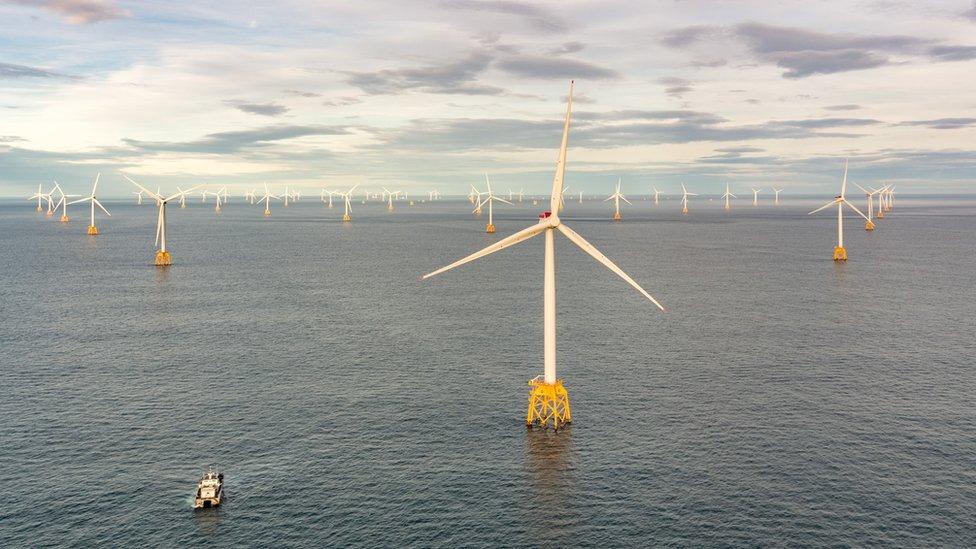
- Published3 September 2018
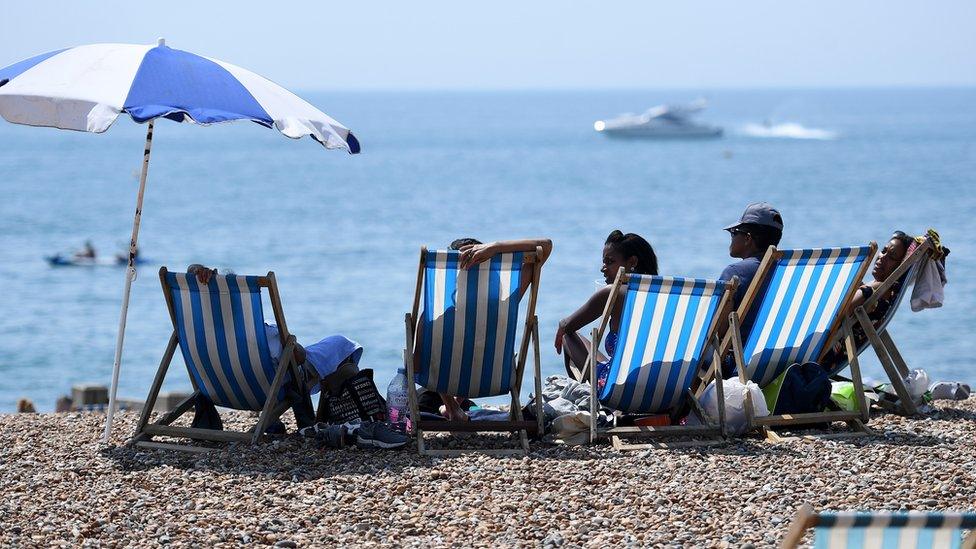
- Published26 July 2018

- Published21 July 2018
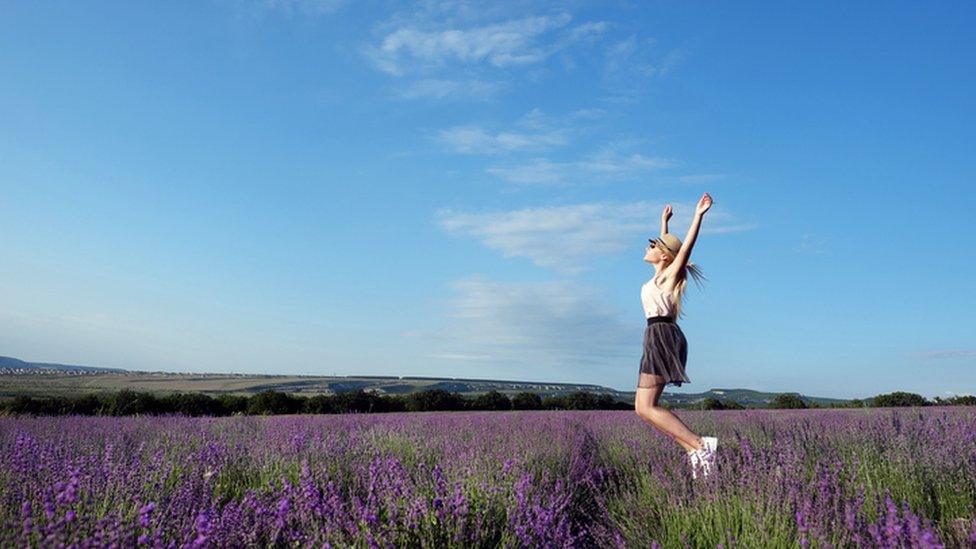
- Published28 June 2018
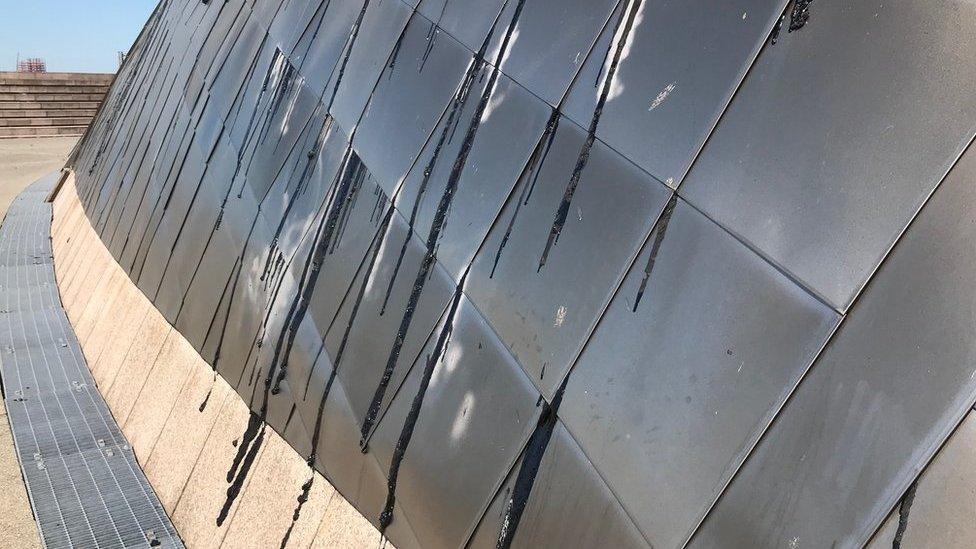
- Published27 June 2018
